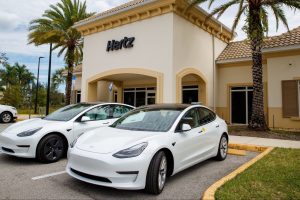- 💰 Tesla claims its standard technology could save police departments over $4,000 in police equipment.
- 🚓 Many police departments worldwide are electrifying their fleets, citing potential cost savings and environmental benefits.
- 🔌 According to Tesla, charging nine electric vehicles (EVs) could cost just $640 per year, compared to an estimated $2,000 per year for gas for traditional police vehicles.
- 🏫 The Eanes Independent School District (EISD) in Austin, Texas, is purchasing nine Tesla vehicles for its newly established multi-campus school police department.
- 🌎 Cities across the U.S. and beyond, including South Pasadena, California, have adopted Tesla vehicles as police vehicles, citing potential savings in maintenance and fuel costs.
- 🚔 CEO Elon Musk has suggested that the Cybertruck could serve as a suitable police vehicle, following inquiries from departments like the one in Rosenberg, Texas.
In an era where sustainability and cost-effectiveness are at the forefront of decision-making, police departments worldwide are turning to innovative solutions to modernize their fleets. One such solution gaining traction is the adoption of electric vehicles (EVs), with Tesla leading the charge in this transformative shift.
The Promise of Cost Savings and Environmental Benefits
Tesla’s assertion that its standard technology could save police departments over $4,000 in police equipment is a compelling proposition. As law enforcement agencies grapple with budget constraints and the need to reduce their carbon footprint, the prospect of significant savings and environmental benefits is undeniably appealing.
- Financial Impact: According to Tesla, the cost of charging nine EVs annually amounts to just $640, a fraction of the estimated $2,000 spent on gas for traditional police vehicles. This substantial reduction in fuel expenses can translate into significant long-term savings for cash-strapped police departments.
- Environmental Considerations: Beyond the financial implications, the transition to electric police vehicles aligns with broader sustainability goals. By reducing reliance on fossil fuels and minimizing emissions, EVs contribute to cleaner air and mitigate the environmental impact of law enforcement operations.
Case Study: Eanes Independent School District
The Eanes Independent School District (EISD) in Austin, Texas, serves as a compelling example of the growing trend towards electrification in law enforcement.
- Forward-Thinking Initiative: EISD’s decision to purchase nine Tesla vehicles for its multi-campus school police department underscores a commitment to innovation and sustainability.
- Local Context: Situated near Tesla’s Gigafactory Texas, EISD is well-positioned to leverage proximity to manufacturing facilities and benefit from ongoing advancements in EV technology.
A Global Shift Towards Electrification
The adoption of Tesla vehicles by police departments extends beyond the borders of the United States, with cities worldwide embracing the transition to electric fleets.
- International Momentum: From South Pasadena, California, to municipalities across Europe and Asia, the global shift towards electrification reflects a shared recognition of the economic and environmental advantages offered by EVs.
- Maintenance Savings: In addition to fuel cost reductions, Tesla vehicles offer lower maintenance requirements compared to their internal combustion engine counterparts, further enhancing their appeal to law enforcement agencies.
Looking Ahead: The Role of the Cybertruck
Elon Musk’s suggestion that the Cybertruck could serve as a viable police vehicle underscores Tesla’s commitment to innovation and adaptability.
- Versatility: With its rugged design and impressive performance capabilities, the Cybertruck has the potential to address the unique needs of law enforcement agencies, from urban patrols to off-road pursuits.
- Community Engagement: Engaging with police departments and soliciting feedback on vehicle suitability demonstrates Tesla’s responsiveness to customer needs and willingness to iterate on existing products.
Conclusion: Driving Towards a Sustainable Future
As law enforcement agencies navigate the challenges of modern policing, the transition to electric vehicles represents a tangible opportunity to enhance operational efficiency and environmental stewardship. By embracing Tesla’s innovative technology, police departments can not only realize significant cost savings but also contribute to a greener, more sustainable future.





